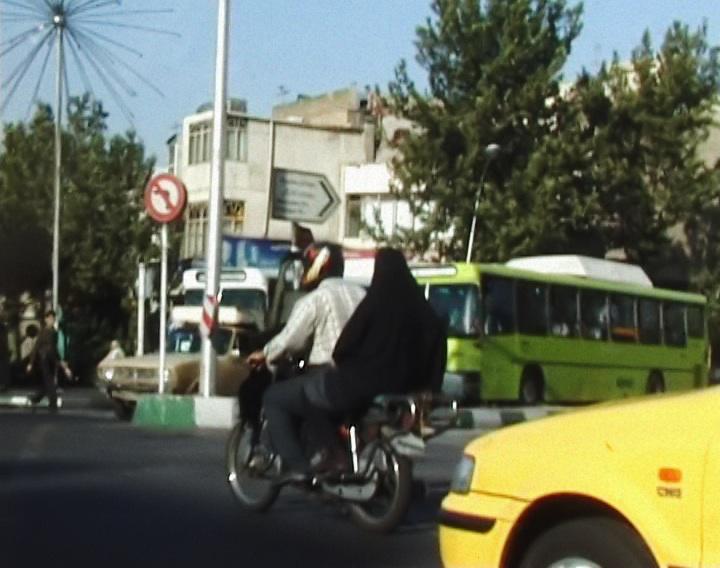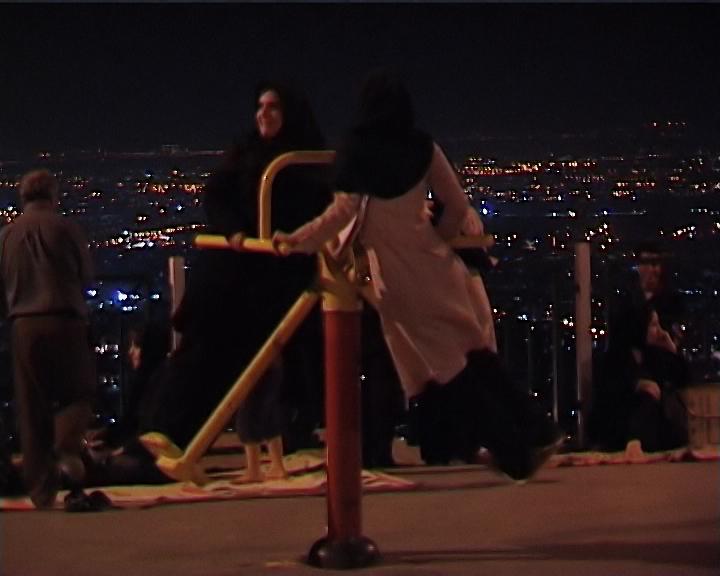Tehran - Lost & Found
When you are in a foreign city without any orientation, a look at a map helps: But not when it no longer lists the street that you are looking for. In Tehran – Lost & Found, Ascan Breuer accompanies his wife Ariane on a search for traces in the Iranian capital from where her family emigrated before the Islamic revolution of 1979.
Yet the documentary film is not a travelogue in the stricter sense; its appeal is not found in the expansive, but rather, the ephemeral; in a gesture of passing by whereby images are captured quickly, offhand. Arising is the impression of a vibrant, oriental capital, an everyday life that includes both huge billboards and revolutionary icons on façades as well as sharp women in taxis who are not too particular about the Fatima festivities. Found bits of a personal view, which have little in common with the frequently one-dimensional Western perspective on Iran. On the other hand, Tehran – Lost & Found is devoted entirely to Ariane who examines within her concept of herself as a member of the second generation in what is for her, a contradictory reality. The family house, which was expropriated; a vague sense of paranoia on the streets; and all the other disparate cityscapes of a day concretize in the evening to a self-questioning of sorts. How can one reconcile one’s own family history with the present political situation in Iran? And how should one react to that? Are the people “stupid” as Ariane says at one point—or are they actually closer to oneself than suspected? There are no easy answers to any of these questions. Yet the film creates an awareness of the contradictions from which hybrid identities are formed—so that in the end, one arrives at somewhere other than the starting point.
Dominik Kamalzadeh
Tehran - Lost & Found
2010
Austria
14 min 30 sec


